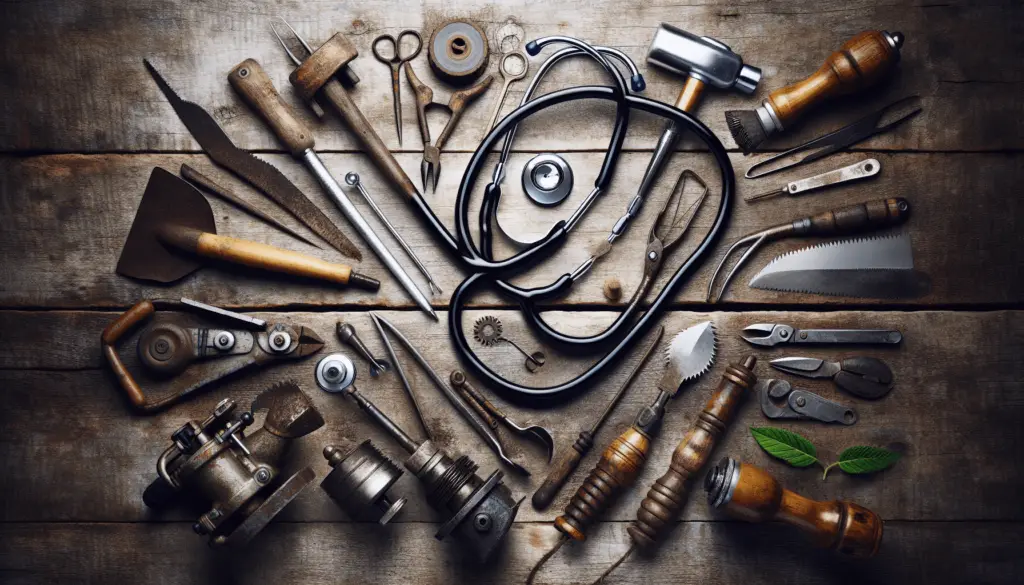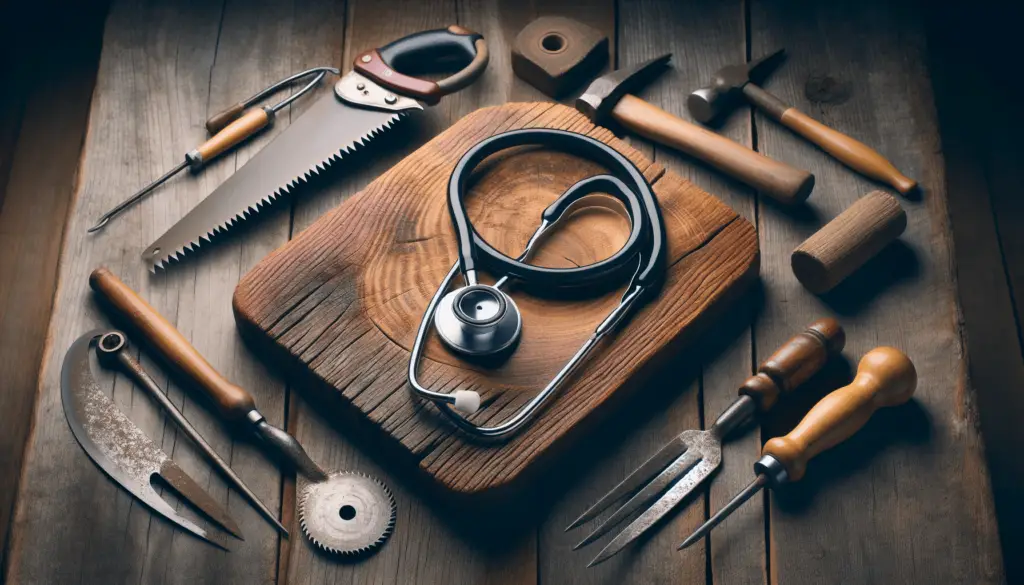Have you ever considered raising livestock on your homestead? If so, it’s essential to understand the basics of veterinary care to keep your animals healthy and thriving. From routine vaccinations to emergency first aid, taking care of your livestock’s health is vital for a successful homesteading experience.

Importance of Veterinary Care on the Homestead
Maintaining the health and well-being of your animals is crucial for the success of your homestead. Regular veterinary care can prevent diseases, detect health issues early on, and ensure your livestock is in optimal condition. By being proactive about veterinary care, you can minimize the risk of illness and keep your animals happy and productive.
Why Routine Veterinary Care is Important
Regular check-ups and vaccinations are essential for preventing diseases and maintaining the overall health of your animals. Routine veterinary care can help identify health issues before they become severe, allowing for early intervention and treatment. By staying on top of your livestock’s veterinary needs, you can prevent costly illnesses and ensure the longevity of your animals.
Importance of Emergency Veterinary Care
In addition to routine veterinary care, it’s crucial to be prepared for emergencies on the homestead. Whether it’s a sudden illness, injury, or birthing complications, having the necessary knowledge and resources for emergency veterinary care can save a life. Being equipped with first aid supplies and knowing how to respond to emergencies can make all the difference in the outcome for your animals.
Essential Vaccinations for Livestock
Vaccinations are a vital part of preventive veterinary care for livestock. They help protect your animals from serious and often deadly diseases, minimizing the risk of outbreaks on your homestead. Understanding which vaccinations are necessary for your specific livestock is key to ensuring their health and well-being.
Common Vaccinations for Cattle
Cattle are susceptible to various diseases, including blackleg, bovine viral diarrhea, and infectious bovine rhinotracheitis. Vaccinations such as clostridial vaccines, viral vaccines, and respiratory vaccines are essential for protecting your herd from these illnesses. Consult with your veterinarian to develop a vaccination schedule tailored to your cattle’s needs.
Recommended Vaccinations for Poultry
Poultry, such as chickens and ducks, require vaccinations to prevent diseases like Newcastle disease, infectious bronchitis, and fowl cholera. Vaccines for poultry often include Marek’s disease vaccine, infectious bronchitis vaccine, and fowl cholera vaccine. Implementing a vaccination program for your poultry can safeguard them from contagious diseases and ensure a healthy flock.
Important Vaccinations for Goats
Goats are susceptible to diseases such as enterotoxemia, tetanus, and caprine arthritis encephalitis. Vaccinations like CD&T vaccine, tetanus antitoxin, and CAE vaccine are crucial for protecting your goats from these infections. Work with your veterinarian to determine the appropriate vaccination schedule for your goat herd.

Basic First Aid for Livestock
Having basic first aid knowledge and supplies on hand is essential for addressing minor injuries and illnesses in your livestock. Being prepared to provide immediate care can prevent a small problem from escalating into a more significant health issue. By familiarizing yourself with basic first aid techniques, you can effectively respond to emergencies on the homestead.
Essential First Aid Supplies for Livestock
Stocking up on essential first aid supplies is crucial for handling emergencies on the homestead. Some basic supplies to have on hand include wound disinfectant, gauze pads, vet wrap, thermometer, and syringes. Creating a first aid kit specifically for your livestock can ensure you’re prepared to address any health concerns that arise.
Common First Aid Techniques for Livestock
Knowing how to perform basic first aid techniques can be invaluable in emergency situations. Learning how to clean and dress wounds, administer medications, and provide supportive care can make a significant difference in your animal’s recovery. Taking a first aid course or consulting with your veterinarian can help you feel more confident in handling veterinary emergencies.
Importance of Nutrition and Hygiene
Proper nutrition and hygiene play a crucial role in maintaining your livestock’s health and well-being. Providing a balanced diet and ensuring clean living conditions can prevent diseases and promote optimal growth and development in your animals. By prioritizing nutrition and hygiene practices, you can enhance the overall health of your livestock and reduce the risk of health issues.
Role of Nutrition in Livestock Health
Nutrition is a fundamental aspect of keeping your animals healthy and productive. Providing a well-balanced diet that meets the nutritional needs of your livestock is essential for their growth, reproduction, and overall well-being. Consult with a veterinarian or animal nutritionist to develop a feeding program tailored to your specific livestock species and needs.
Importance of Hygiene Practices on the Homestead
Maintaining clean and sanitary living conditions for your animals is crucial for preventing the spread of diseases and infections. Regularly cleaning and disinfecting barns, coops, and feeding areas can help minimize the risk of illnesses and promote a healthy environment for your livestock. Implementing proper hygiene practices can contribute to the overall health and well-being of your animals.
Building a Relationship with a Veterinarian
Establishing a relationship with a veterinarian who specializes in livestock care is essential for the health and welfare of your animals. A knowledgeable and experienced veterinarian can provide expert advice, preventive care, and treatment options for your livestock. By working closely with a veterinarian, you can ensure your animals receive the best possible care and support.
Choosing the Right Veterinarian for Your Livestock
When selecting a veterinarian for your livestock, consider their experience, expertise, and availability for emergencies. Look for a veterinarian who has a background in livestock medicine and understands the specific needs of your animals. Building a trusting relationship with your veterinarian can facilitate open communication and collaboration in managing your livestock’s health.
Importance of Regular Veterinary Check-ups
Scheduling regular veterinary check-ups for your animals is essential for monitoring their health status and addressing any underlying concerns. Routine examinations allow your veterinarian to assess your livestock’s overall health, provide vaccinations, and detect early signs of illness. By prioritizing regular veterinary check-ups, you can stay proactive in managing your livestock’s health.
Conclusion
In conclusion, understanding the basics of veterinary care is essential for homesteaders who raise livestock. By prioritizing routine veterinary care, vaccination protocols, emergency preparedness, first aid knowledge, nutrition, hygiene practices, and building a relationship with a veterinarian, you can ensure the health and well-being of your animals. Taking proactive measures to care for your livestock can enhance their quality of life and contribute to a successful homesteading experience.
Remember, your animals rely on you to provide them with the necessary care and support to thrive on the homestead. By staying informed and proactive about veterinary care, you can create a safe and healthy environment for your livestock to grow and thrive. Here’s to happy and healthy animals on your homestead!
